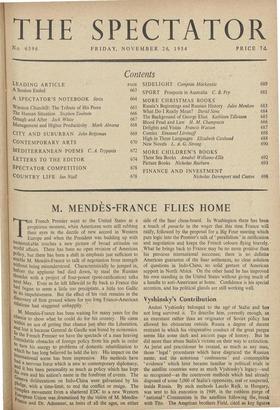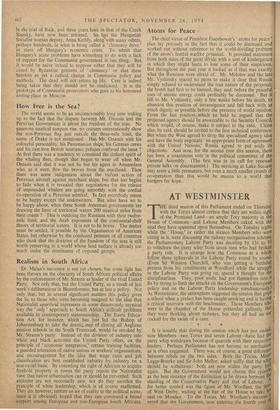Vyshinsky's Contribution
Andrei Vyshinsky belonged to the age of Stalin and has not long survived it. To describe him, ,correctly enough, as an executant rather than an originator of Soviet policy has allowed his obituarists outside Russia a degree of decent restraint in which his vituperative conduct of the great purges seems like some dark and ancient page of history. But he did more than abuse Stalin's victims on their way to extinction. As jurist and practitioner he created, as much as any man, those ' legal' procedures which have disgraced the Russian name; and the notorious ` confessions ' and contemptible ` evidence' which later became familiar in political trials in the satellite countries were as much Vyshinsky's legacy—and so recognised—as the courtroom methods which had already disposed of some 5,000 of Stalin's opponents, real or suspected. inside Russia. By such methods Laszlo Rajk, in Hungary, was sent to his execution in 1949, in the ruthless purge of ' national ' Communists in the satellites following the, break with Tito. The American brothers Field, cited as key figures in the trial of Rajk, and three years later in that of the Czech Slansky, have now been released. So has the Hungarian Socialist woman deputy, Anna Kethly, along with many others. perhaps hundreds, in what is being called a clemency drive' to stave off Hungary's economic crisis. To admit that Hungary's acute problems have something to do with a lack of support for the Communist government is one thing. But it would be naive indeed to suppose either that they will be cured by Byzantine gestures of ' clemency' or that these betoken as yet a radical change in Communist policy and methods. The dead will not return to life. Care is indeed being taken that they should not be vindicated. It is the prototype of Communist prosecutors who goes to his honoured resting-place in Moscow.











































 Previous page
Previous page